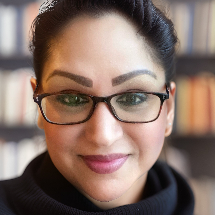What Is Generational Trauma? Definition, Examples, and Effects





- Generational trauma can come from singular-family or community-wide events.
- Racism, slavery, and genocide commonly cause and perseverate generational trauma.
- Open communication, cultural traditions, and fostering resiliency can stop the cycle.
Generational trauma affects a generation’s worldview, mental health, and overall well-being, starting with something that happened to the parents. Their children, and their children’s children, can carry the effects of trauma despite not living through it.
Generational trauma can be passed down through learned behaviors, parenting styles, and can influence children’s genetics, predisposing them to mental and physical health challenges.
What Causes Generational Trauma?
Generational trauma is caused by a parent, or both parents, experiencing trauma1 and transmitting it to their children. The parents can be part of a collective group, like Holocaust survivors, or singular survivors of a traumatic event like childhood abuse, disasters, or rape.
Children with generational trauma don’t experience the trauma directly. Instead, the effects of it pass down from their parents and can leave their children with symptoms and worldviews as if they did directly experience it. Without treatment, generational trauma can pass down through multiple generations.
Examples of Generational Trauma
Generational trauma can affect entire groups and races. For example, Indigenous and minority communities still feel the effects of racism, brutality, and segregation. Survivors of war and Holocaust survivors similarly experience collective generational trauma.
Since generational traumas often impact a group’s culture and way of life, newer generations may collectively seek out more information about their history and the traumas affecting them in the present day. Some groups and races may not be comfortable with that yet, but many are. Here are a few examples of generational trauma in specific groups/races/communities.
Indigenous Communities
Residential schools in America and Canada housed Indigenous children in an attempt to disseminate their culture, impose religion2, and ultimately force Indigenous children to adopt a Western culture. Malnutrition, racism, violence, genocide, and abuse in and out of residential schools imposed trauma that’s extended over generations.
Indigenous communities bear generational trauma as a collective group, with singular instances of trauma in each unique family and community. Children and grandchildren of those who were in residential schools and victims of colonization can feel the effects of their trauma despite not having gone through it themselves.
Asian Communities
Past wars, immigration, imperialism, and racism can all cause generational trauma in Asian families and their community as a whole. Many Asian Americans also bear the “model minority” label3, where generations are continually expected to behave with gratitude towards America and to forget the trauma in their past (and America’s contribution to it). Thus, silence can prevail between generations, which further distributes generational trauma3.
Black Communities
Slavery, racism, segregation, and violence impacted black communities from the slave trade and continued racism from it. Black families and communities in America share a haunting past of death, brutality, and inhumanity that still carries into the present. As a result, generational trauma can pass through families and affect generation after generation.
African Americans have been segregated and not seen as equals. Racial violence has been hidden and expected to be forgotten. Even in present-day America, issues like these continue to affect new generations and promote further generational trauma.
Holocaust Survivors
The men, women, and children who survived the Holocaust (1933-1945) can carry the burden of generational trauma. Murder, assault, racism, and genocide impacted Jewish families and left deep scars in their lineage. Survivors experienced unforgettable horrors and developed post-traumatic stress disorder.
The effects of the trauma passed through generations of Jewish families in and outside Europe. The brutality of the Holocaust continues to shake and affect Germany, European countries, and America despite efforts of justice and healing.
Other Genocide Survivors
Several countries and cultural groups within them have experienced genocide. Rwanda, for example, experienced genocide in 1994. Genocide has also happened in Darfur, Bosnia, Herzegovina, China, Ukraine, Armenia, and more. Murder, violence, theft, and rape were often used as weapons.
Those who survive genocide are often left with emotional scars. Many women and girls, for example, were raped and mutilated. The communities and cultures who survived genocide bear the weight of it and can pass that down in future generations, especially as groups try to rebuild relationships and reestablish harmony.
Explore Trauma Treatment Centers
How Is Generational Trauma Passed Down?
Trauma can pass through parenting styles, imposed worldviews, and, as research recently suggests, genetics. For example, mothers in the Holocaust were found to pass on the genetic changes4 that dysregulated their stress response. That’s because of epigenetics, or how your environment and behaviors affect how your genes work5. Biological and genetic changes can make children more disposed to inherited health and mental health conditions.
Silence can be the catalyst3 for generational trauma. Older generations may not feel comfortable talking about, or at all acknowledging, their trauma. Burying their trauma can inadvertently pass it on to their children, who pick up on their traumatized state and adapt in response.
Children may adapt by becoming overprotective1 of their parents, by holding onto the trauma and attaching to it, and by taking their parent’s view of the world to maintain their idea of safety. They may see the world as unsafe, unfriendly, and feel isolated by what their parents or grandparents went through.
How Does Generational Trauma Affect Families?
Families can become disconnected and distant as a result of generational trauma. Parents experiencing PTSD and trauma may struggle to form secure attachments to their kids, affecting their emotional growth and wellness. An unwillingness to talk about obvious trauma can frustrate children and derail their desire to heal.
Children may also feel the burden of fixing the trauma. They may see how it affects their parents and subconsciously decide perfection can fix their parent’s problems and restore their family. Perfectionism, anxiety, and obsessions can then pass down to their children and extend the original trauma’s effects.
Ultimately, unacknowledged and untreated generational trauma can forfeit familial closeness and intimacy. Parents and children can then turn to maladaptive coping strategies, like substance use, to cope with the initial trauma and its later effects.
Effects of Generational Trauma
Generational trauma has a few key effects6, including:
- Fused identity with parents and what they experienced
- Poor self-esteem
- Self criticism—”Why am I struggling with this when my parents had to go through ___?”
- Worrying the initial trauma will happen again
- Guilt
- Hypervigilance
- Mental health conditions, like anxiety and depression
Breaking The Cycle of Generational Trauma
If silence is the catalyst of generational trauma, then conversation is its mediator3. Having open conversations about the traumatic experience educates children, helps older generations process, and can prevent trauma’s effects from passing further.
In these conversations, emphasizing collective resilience can help survivors3 and their children heal. Collective resilience occurs when a group comes together to get through a challenge, rather than isolating, and recognizes their strength. Facing generational trauma can make future generations more adaptive6 and resilient to future challenges.
Leaning into tradition and culture can empower old and new generations and instill resilience. Storytelling, traditional activities, and other cultural practices can help survivors acknowledge what happened, its effects, and their efforts toward collective healing.
Parents can also prioritize mental health treatment to improve how they communicate with their kids, how they react to challenges, and how they cope with trauma they experienced without it inadvertently affecting their parenting.
How to Heal Generational Trauma
Parents and their children—and their children—can also heal from generational trauma through mental health treatment. A mental health professional, like a therapist, psychologist, or counselor, can help those affected by generational trauma process the past and move into the present.
A mental health professional can also help challenge worldviews affected by generational trauma and expose truth. They may use evidence-based therapies like cognitive behavioral therapy (CBT), which challenges unhelpful thought patterns and their resulting behavior.
Internal family systems (IFS) therapy takes a more creative and engaging approach to identifying generational trauma and equipping your inner Self to heal it. In IFS, generational trauma is identified as an outcast part of yourself that your inner Self can heal. You’ll learn to identify generational trauma and how to realize your innate ability to heal.
Find Help for Trauma
Attending a residential rehab center for trauma can help you take focused time for healing in a safe, non-triggering environment. Browse our list of rehabs that treat trauma to see photos, reviews, insurance information, and more.
-
“The Legacy of Trauma.” Https://Www.Apa.Org, https://www.apa.org/monitor/2019/02/legacy-trauma. Accessed 7 Dec. 2023.
-
Mosby, Erin Millions, Ian. “Canada’s Residential Schools Were a Horror.” Scientific American, https://www.scientificamerican.com/article/canadas-residential-schools-were-a-horror/. Accessed 7 Dec. 2023.
-
Cai, Jieyi, and Richard M. Lee. “Intergenerational Communication about Historical Trauma in Asian American Families.” Adversity and Resilience Science, vol. 3, no. 3, 2022, pp. 233–45. PubMed Central, https://doi.org/10.1007/s42844-022-00064-y.
-
“How Does Trauma Spill from One Generation to the Next?” Washington Post, 12 June 2023, https://www.washingtonpost.com/wellness/2023/06/12/generational-trauma-passed-healing/.
-
Breton, C.V., Landon, R., Kahn, L.G. et al. Exploring the evidence for epigenetic regulation of environmental influences on child health across generations. Commun Biol 4, 769 (2021). https://doi.org/10.1038/s42003-021-02316-6
-
Yehuda, Rachel, and Amy Lehrner. “Intergenerational Transmission of Trauma Effects: Putative Role of Epigenetic Mechanisms.” World Psychiatry, vol. 17, no. 3, Oct. 2018, pp. 243–57. PubMed Central, https://doi.org/10.1002/wps.20568.
Our Promise
How Is Recovery.com Different?
We believe everyone deserves access to accurate, unbiased information about mental health and recovery. That’s why we have a comprehensive set of treatment providers and don't charge for inclusion. Any center that meets our criteria can list for free. We do not and have never accepted fees for referring someone to a particular center. Providers who advertise with us must be verified by our Research Team and we clearly mark their status as advertisers.
Our goal is to help you choose the best path for your recovery. That begins with information you can trust.






